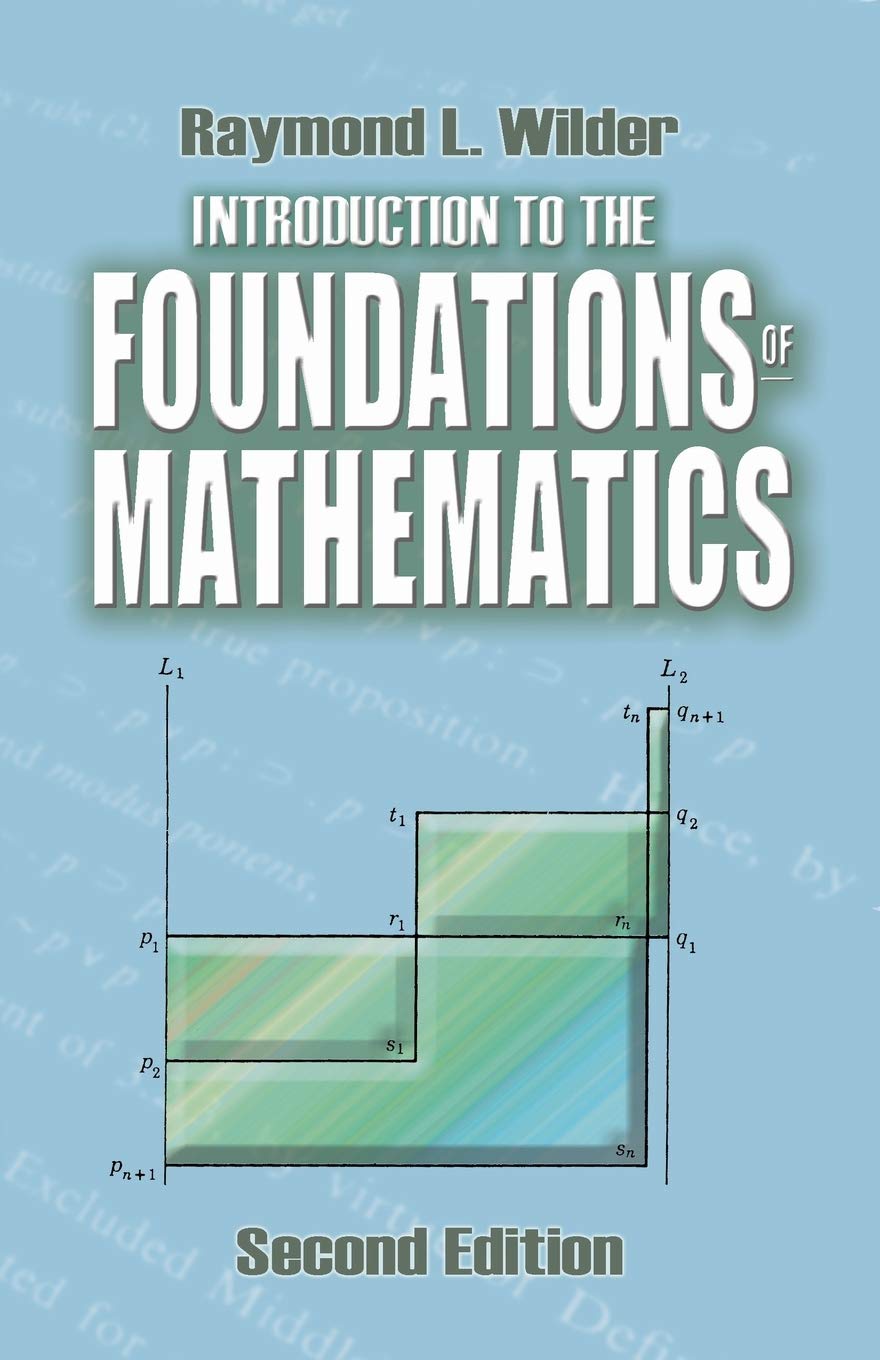

Full description not available
H**R
a valuable introduction to the subject.
very clear exposition of ideas. very readable, background is provided along the way.The book dates from the 1960s but is still relevant and a valuable introduction into the foundations of mathematics.It requires slow reading, and a lot of focus, but it is worth the effort.
C**R
A tremendous book
I bought it because of a reference on my actual topogy book (Ignacio Iribarren, Topoly of Metric Spaces) and I have made a brief revision of its content. I have seen nothing but a wonderful journey thourgh centuries of mathematics reasoning. It is a tremendous book!
N**M
An Excellent Book by all Definitions!
An excellent book! Very readable and understandable.A must read for all high school and college students who aspire to understand real mathematics.Contains historical material too.
A**N
Motivates and explains much mathematical logic
The great virtue of this "Introduction to the foundations of mathematics" by Wilder, second edition, is in the expansiveness of the explanations of mathematical logic topics which are generally given only unmotivated technical treatment by other authors. Throughout the book, there is commentary about the meaning and significance of the topics under discussion. It is sometimes almost chatty and conversational. This is important because since the author's time of writing (the 1950s and 1960s), books on this subject seems to have diverged towards the elementary end of the spectrum for those readers who need mathematical logic for applications to other subjects, and towards the specialist end of the spectrum for the professionals who live in another world which they cannot or will not explain to outsiders. This book is a half-way house between the elementary and the advanced, attempting to make a bridge between the extremes.This book is quite undogmatic. One might even describe it as anti-dogmatic. At many points, the author questions the meaningfulness or correctness or wisdom of the standard ways of doing things.The book is organised into two parts. In part 1, Chapter 1 presents some history and background and motivation for the axiomatic method. Chapter 2 introduces models, interpretations, consistency, independence, completeness, model-isomorphisms, and some arguments for and against the axiomatic method. Chapter 3 presents some background for set theory (without giving axioms), Russell's paradox, the relation between "infinite" and "Dedekind infinite", and what the axiom of choice is useful for. Chapter 4 presents infinite sets, with much discussion of their cultural and historical background, and the Schröder-Bernstein theorem. Chapter 5 presents ordinal numbers and well-ordering, with discussion of what it means for a well-ordering to "exist", plus the equivalence of AC, Zorn's lemma and the "well-ordering theorem". Chapter 6 presents the real number system, with discussion of its order structure and representations. Chapter 7 is about groups, elementary algebra, vector spaces, various geometries and topology. It isn't clear to me why Chapter 7 is in this book. It seems to be unrelated to the rest of the book.Part 2 of the book (chapters 8-12) presents mostly history and philosophy of mathematical logic, including some presentation of Zermelo's set theory axioms, propositional calculus, truth tables and predicate calculus. Part 2 gives a pretty good overview of the historical developments, including descriptions of the numerous philosophical viewpoints such as intuitionism and logicism, and the views of Cantor, Kronecker, Peano, Frege, Russell, Poincaré, Hilbert and Zermelo. There is a brief explanation of Gödel's incompleteness theorem.I think this would be a pretty good background book to explain the historical and cultural background behind mathematical logic until just before the time of Paul Cohen's contributions. It is not the right book to learn mathematical logic from. It does not give systematic presentations of first-order languages, axiomatic set theory or model theory like in the serious modern "heavy" books on this subject. But the serious modern books are mostly sadly lacking in motivation and meaning. This book should assist in making sense of it all, at least of those developments up until about 1960.
U**N
Five Stars
ok
M**N
there are way better resources for the same ideas
It's a VERY old book, the writing is dated, there are way better resources for the same ideas, much more readable, without all the "the student ... he ..." language, that are available. But the problems are sometimes really interesting!
P**E
Wilder review
I was looking for the original edition. This edition has changed the original beyond recognition. I will probably locate the original.
Trustpilot
1 month ago
2 days ago